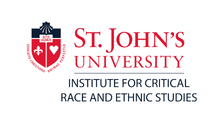ORCIDid
0000-0003-1199-8972
Abstract
Culturally responsive teaching allows teachers to build relationships with students, stimulating a sense of community and engagement. Providing equitable STEM (Science, Technology, and Mathematics) education for PreK-12 students requires designing curriculum, instruction, and assessment that values students’ cultural backgrounds. We argue that exposing students of color to STEM careers and pathways can increase their representation in STEM. This project, conducted by a university faculty member and a middle and high school teacher, aimed to educate students of color about STEM careers. The teacher found that 80% of students were unaware of STEM careers. Using an explanatory sequential mixed-methods design, the study examined high school students’ STEM career choices in two phases. The quantitative phase surveyed 116 students before and after, what we call, STEM Thursday sessions, where they learned about diverse STEM professionals, historical contributions, and career pathways. The qualitative phase involved semi-structured interviews and narrative storytelling engaging four students to capture deeper insights. These methods provide a balance of structured inquiry and open-ended exploration, allowing students to articulate their evolving STEM interests. Findings show that 38% more students expressed interest in STEM careers after participating in STEM Thursdays. We conclude that strong teacher-student relationships enhance engagement and confidence, reinforcing the role of culturally responsive teaching in shaping aspirations. Statistical results confirm significant improvement in STEM career selection (t(116) = 4.773, p < 0.0005). Integrated quantitative and qualitative findings suggest that exposure to diverse role models and structured career discussions encourages minority students to pursue STEM careers.
Recommended Citation
Guha, Smita and Alkayfee, Sabrina
(2025)
"Culturally Responsive Teaching, STEM Careers, Minority Students, Student Engagement, Education,"
Journal of Critical Race and Ethnic Studies: Vol. 2:
Iss.
2, Article 3.

